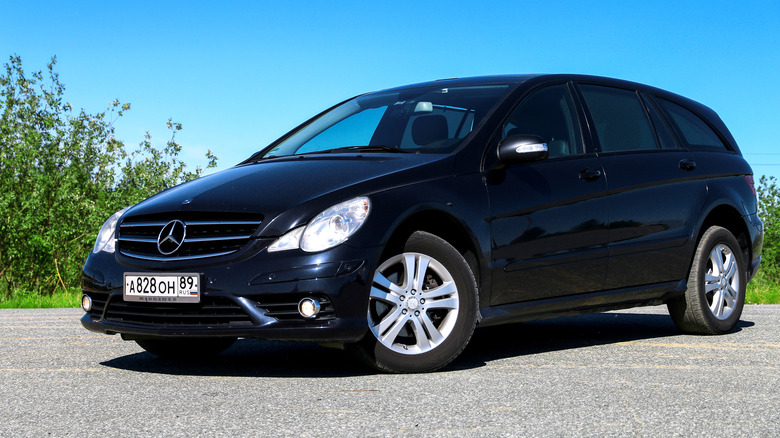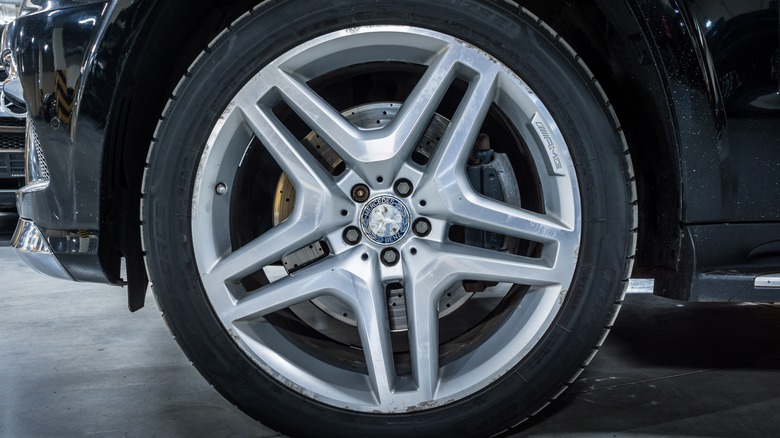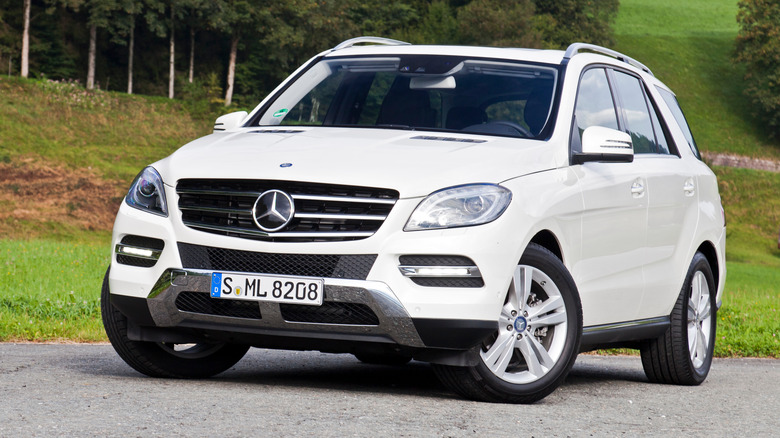Mercedes Issues An Urgent Recall Of 290K SUVs
Mercedes-Benz AG has issued an emergency warning to the owners of 292,287 SUVs in the US, including GL-, ML-, and R-Class vehicles sold between 2006 and 2012. The company recently concluded an investigation and identified corrosion-related issues in the cars' braking systems that could cause a potential failure. That is why the automaker has also initiated a "voluntary stop drive" campaign, advising owners to step away from the gas pedal until the issue is rectified.
More specifically, the issue lies in the brake booster assembly, where the corrosion is most noticeable. With prolonged exposure to water, the corrosion in the assembly can lead to cracking and eventual air seepage into the brake booster, thereby decreasing the brake force support. If the corrosion is severe, it can also cause mechanical damage when the brakes are applied too hard, leading to a conceivably fatal failure. Mercedes also remarks the functioning of the foot-activated parking brake remains unaffected by this flaw.
Dealers to test vehicles for corrosion
Mercedes-Benz advises that owners can spot early signs of corrosion in the brake booster assembly by observing a softer brake pedal or unusual sounds, such as hissing or wheezing sounds, which indicate contamination in the brake fluid. To get this issue fixed, users will be required to visit an authorized Mercedes-Benz dealer where the brake booster housing in the affected vehicles will be examined.
SUVs that do not show "advanced corrosion" will be permitted to drive without any further action. Meanwhile, cars that do show an alarming amount of corrosion around the brake booster housing will be required to go through a second test. Vehicles that pass the second test can be driven for the next two years and will be given additional repairs in the future. Meanwhile, those that fail both of these tests ultimately will have to undergo a complete replacement of the brake booster mechanism.
Towing, alternate vehicle to be offered if necessary
Since Mercedes-Benz advises these cars not to be driven, the dealership will provide towing services to approved repair centers. In case the repairs cannot be performed immediately, the dealer will also provide an "individual solution for the customer, including alternate mobility."
Mercedes-Benz says there have been no crashes, injuries, or deaths due to corroded brake boosters. The company has already begun notifying its customers starting May 12 after notifying the National Highway Traffic Safety Administration (NHTSA) a few days prior.
The issue was discovered after nearly a year-long investigation that began in July 2021, following several consumer complaints about brake force decreasing. Although these reports came from outside of the US, Mercedes-Benz launched investigations in markets across the world by September 2021 to ensure no life was put at risk.
In March 2022, the company came across one case where corrosion in the brake booster housing led to poor braking. On May 2, 2022, it concluded the issue could not be ruled out and decided to recall vehicles for repair.


